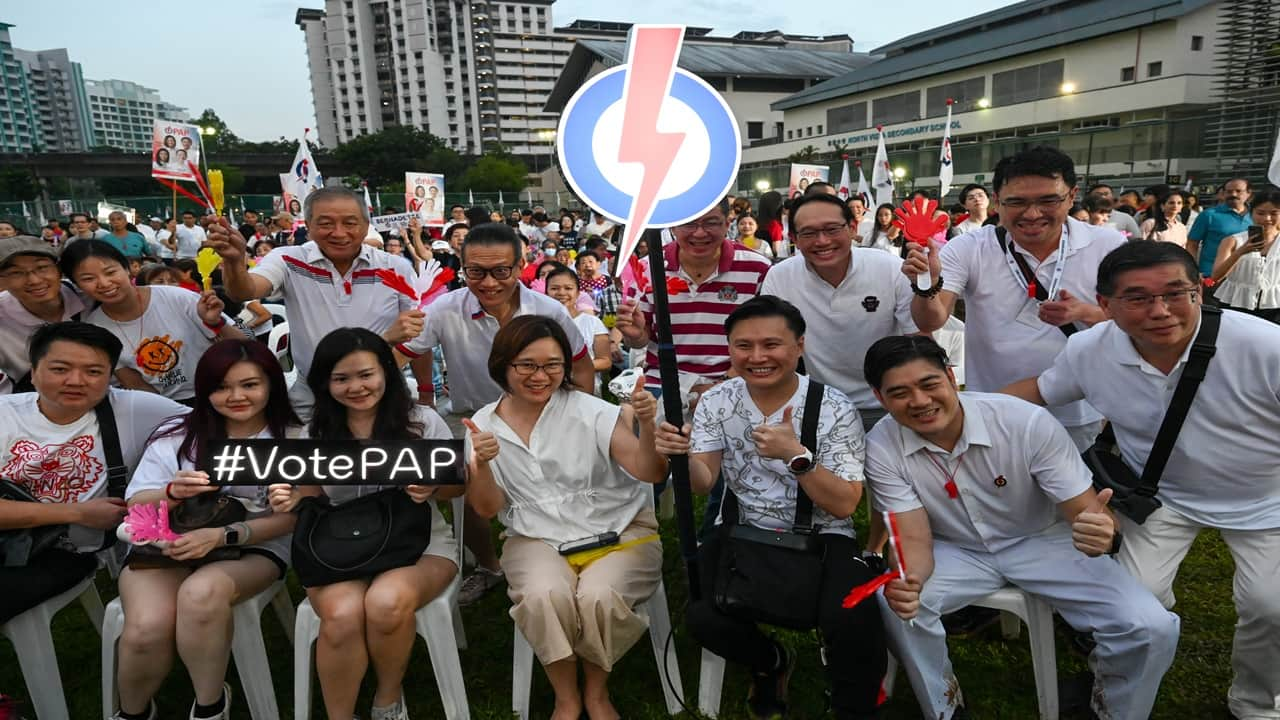
Singapore Election 2025 Live Updates: Singapore votes in first major test for new PM Lawrence Wong amid public discontent
Published on 03/05/2025 06:38 AM
Singapore Election 2025 Live Updates: Singaporeans are casting their votes on Saturday in what is widely seen as the first major political test for newly appointed Prime Minister Lawrence Wong. His ruling People’s Action Party (PAP), which has governed the city-state since its independence in 1965, is expected to retain power, but growing public unease over tight government controls and rising living costs could chip away at its long-standing dominance.
Renowned for its clean governance and economic stability, the PAP remains the most powerful force in Singapore’s political landscape. The party has a strong track record of attracting investment and maintaining a stable, trade-dependent economy. It also enjoys significant advantages in resources and membership, with 46 percent of the 211 candidates contesting this election representing the PAP.
Despite an anticipated victory, this election could highlight shifting sentiments among voters. The fragmented opposition poses little threat to the PAP’s grip on power. The Workers’ Party, considered the main opposition, is only contesting a quarter of the seats, capping its potential at 26, while the Progress Singapore Party is contesting just 13 seats, limiting its influence.
Still, the vote is a key barometer for Lawrence Wong’s leadership and the electorate’s appetite for political continuity versus change.
The main opposition force is the Workers’ Party (WP), led by Pritam Singh, who became Singapore’s first official Leader of the Opposition after the 2020 elections.
While the WP has made steady gains, it is fielding only 26 candidates this time — fewer than a third of the seats — citing limited resources and fragmented opposition support.
Other parties include nine smaller opposition groups and two independents, all competing to chip away at the PAP’s dominance. Singh has stated that even if his party won all 26 seats, it would not destabilize the government but would strengthen democratic checks and balance.
The opposition has centered its campaign around economic inequality, housing shortages, and the cost of living — all pressing concerns in one of the world’s most expensive cities. Wong’s government has responded with generous budget handouts — including grocery vouchers, tax rebates, and cash payouts — to cushion the public from inflation and global economic uncertainty.
Another major opposition demand includes tighter regulations on foreign workers in high-income sectors and expanded healthcare subsidies, particularly for the aging population.
Wong has pushed back against these ideas, warning they may strain public finances and deter investment.
The PAP, in power since Singapore’s independence, is widely credited with establishing a clean, efficient government and maintaining economic stability.
Yet, in recent years, dissatisfaction has grown over rising living costs, housing affordability, immigration pressures, and restrictions on civil liberties.
While the PAP is not expected to lose power, its support has eroded.
In the 2020 general election, its share of the popular vote dropped to 61%, down from nearly 70% in 2015.
Though it retained 83 out of 93 seats, the opposition won a record 10 seats, indicating a growing appetite for alternative voices and increased accountability.
The 2025 election is also a test for Lawrence Wong, the former finance minister and U.S.-trained economist who succeeded Lee Hsien Loong as Singapore’s Prime Minister.
A strong PAP showing would cement Wong’s authority and signal continuity in Singapore’s one-party dominance.
There are 33 constituencies in total — 15 SMCs and 18 GRCs — with 97 seats up for grabs in Parliament.
However, five seats have already gone uncontested to the PAP in one GRC where no opposition candidates stood.
In total, about 2.76 million people are registered to vote.
Polling runs from 8 am to 8 pm local time, with results expected the same night.
In SMCs, voters elect one representative.
In GRCs, they vote for a team of up to six candidates. Each GRC team must include at least one member from a minority ethnic group to ensure diverse representation in Parliament.
While this model is meant to safeguard minority interests, critics argue it favors the ruling People’s Action Party (PAP) by making it harder for opposition parties to contest, especially in larger multi-member seats.
Singapore’s general elections are held every five years and voting is compulsory for all eligible citizens.
The country uses a hybrid electoral system combining Single Member Constituencies (SMCs) and Group Representation Constituencies (GRCs).
Banks Or IT: Which Stocks Should You Buy Now? | Sectors To Watch | IT Stocks | Stock Market
Stock Market Holiday Jammu Kashmir News Live GT vs SRH Live Score Delhi Rain PM Modi on Shashi Tharoor Odisha 10th Result 2025 Ganga Expressway Indian Rupee Hyderabad Water Crisis IPL Points Table 2025
Business Markets Stocks India News City News Economy Mutual Funds Personal Finance IPO News Startups
Home Currencies Commodities Pre-Market IPO Global Market Bonds
Home Loans up to 50 Lakhs Credit Cards Lifetime Free Finance TrackerNew Fixed Deposits Fixed Deposit Comparison Fixed Income
Home MC 30 Top Ranked Funds ETFs Mutual Fund Screener
Income Tax Calculator EMI Calculator Retirement Planning Gratuity Calculator
Stock Markets
News18 Firstpost CNBC TV18 News18 Hindi Cricketnext Overdrive Topper Learning
About Us Contact Us Advisory Alert Advertise with Us SupportDisclaimer Privacy Policy Cookie Policy Terms & Conditions Financial Terms (Glossary) Sitemap Investors
You are already a Moneycontrol Pro user.